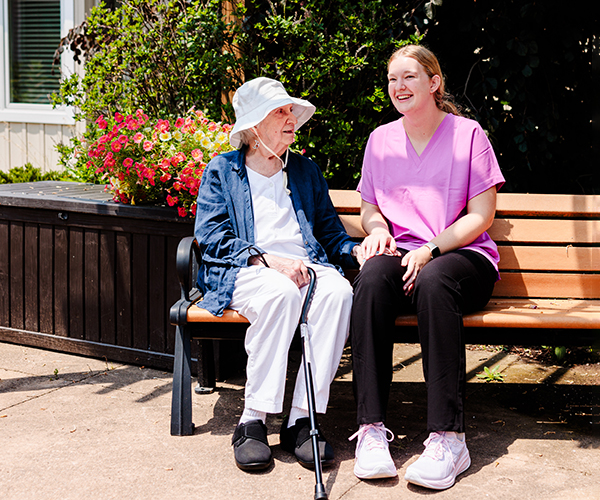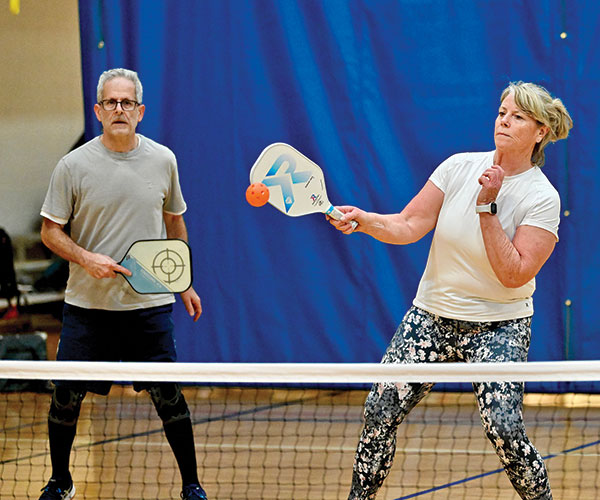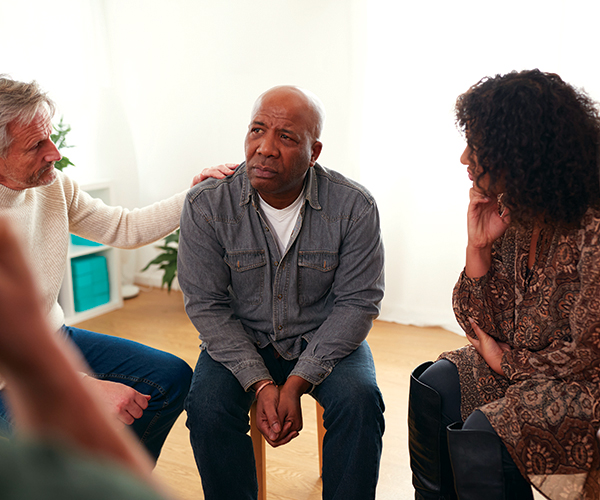Fifteen years ago, at age 45, Rich Ostendors had a hard time keeping up with his daughter's softball team. Though he was their coach, he wasn't winning any foot races against them. Even basic stretches were a problem for him. Then he had a moment of revelation.
"I tried to do something simple, like touching my toes, and I couldn't," Ostendors says. He took it as an ominous sign. "I said, ?Wait a minute: This is a precursor of coming attractions.' " He realized it was time for a change.
Like Ostendors, many people haven't been taking care of themselves as they age. Half of Americans ages 55 to 64 have high blood pressure, and two in five are obese, the national Centers for Disease Control and Prevention recently announced.
So if you've coasted into your 50s or 60s with average to poor health habits, now's a critical time to change ? not only to live longer, but to live better as you age.
"Turning 50 is quite a turning point for a lot of people," says Margaret Hawkins, manager of health promotions for AARP, the advocacy group for Americans 50 and older. "It's almost like a time of reckoning."
At 50, various health problems may be just popping up, if some haven't already. The number alone is a reminder that you are not getting younger. At this time, we can also look at our parents' health as a barometer of where we might be headed.
Think about aging as a line on a chart, Hawkins says. If the line is heading south, your quality of life is declining. Keeping the line straight means you're maintaining your quality of life as you age. Taking care of yourself "keeps that line straight," Hawkins says.
Ostendors is 60, and his line is going nowhere but up. Young girls don't beat him in base-running anymore. He can touch his toes again, plays catcher at the Chicago White Sox fantasy camp and volunteers as brakeman for the Cuyahoga Valley Scenic Railroad once a month. He just may have left a few softball players in the dust when he bicycled across the United States, from California to New Hampshire, in 2002. For a follow-up, he's thinking about crossing the country from north to south.
"Bicycling, baseball and railroads are my way of staying young and active," Ostendors, a medical director for Marymount Hospital in Garfield Heights, says with a hint of excitement that makes him sound like he's still in his teens.
Much of the advice medical professionals give older adults isn't all that different from what we heard at 12 years old - exercise, eat right, be social, quit smoking or don't start smoking. But now, you're balancing all those tasks with housework, grandchildren and daily life instead of finding time between cartoons.
Many of us have found ways of avoiding health advice, no matter how good it is. So breaking 30-year-old bad habits is particularly challenging. It's important to believe it's not too late to make changes.
"There's so much we have to do, it's easy to get [health] pushed aside," Hawkins says. "When you think about the impact on our remaining years, you think, Why are we doing that?"
Even though Ostendors is a medical professional who routinely gives out health advice, he got away from exercise, consumed with his job and family.
"You still see yourself as young and you don't necessarily have a balance," he says. "Maybe it's only as you get older that your priorities switch so that you do live a little longer."
Ostendors' wife, Reta Symczak, associate administrator at Jennings Center for Older Adults in Garfield Heights, agrees.
"He and I both have had the experience of seeing patients younger than us or the same age as us and just realizing what happens when you don't take care of yourself," she says.
After deciding he needed a change, Ostendors got back to his passion of baseball. He joined a Cleveland over-30 baseball league. He's a determined person, his wife says, so his recommitment to health was more than just a crash diet.
"He's just a real disciplined guy," Symczak says. "If anything, he becomes my conscience of whether I exercise or not. He's made [exercise] a top priority."
For many, however, getting back to a healthy lifestyle or starting for the first time is not as easy.
"What we find in people is, they say, ?Just tell me what to do,' " Hawkins says. "I think they know the health message. It's how to make it easy for them."
Hawkins says it's best to build health into your schedule. Find ways to make it easy for you. Instead of trying to figure out ways to fit in a half-hour walk, take three 10-minute walks. While you are waiting in line at the grocery store, try standing on one leg to work on balance.
A lifelong habit of exercising is the best way to prepare for old age, says Dr. Jack Guralnik, lab chief for epidemiology, demography and biometry at the National Institute on Aging. However, it's never too late to start. Guralnik says studies have shown that even frail people can benefit from strength training.
"It's making it part of your daily life," he says. "Think about finding [a way] of exercising that's not just good for you but is fun."
Megan Tettau, assistant administrator at the Jennings Center for Older Adults in Garfield Heights, suggests keeping an open mind to health. While she won't deny the benefits of medicine, she is a champion of using natural cures when possible.
"Ask your doctor what you can do to change your lifestyle so maybe you don't have to take medication," Tettau says.
One natural way of feeling healthy is yoga. Tettau is also a yoga instructor; five of the students in her class are between 45 and 75 years old. Her students tell her yoga has helped them with aches, pains and relaxation. "I had one lady tell me she almost got into a car accident, she was so relaxed (after class)," Tettau laughs.
Once Ostendors became more active, it opened new doors for him. One summer he decided to go on a bike camping trip with his son.
As a child living around Chicago, Ostendors thought of his bike as a key to the outside world. Eventually, though, he got away from biking too.
Still, Ostendors had dreamed of riding his bike across the United States since the '70s, when a group called Bike Centennial mapped out the first cross-county bike trip. When he began biking again, he remembered his decades-old goal. Then he compared his training mileage with a cross-country ride, and he realized it wasn't as unlikely a goal as he once thought.
"I said to myself, ?Someday I'll do this.' Time went on and I got married and had kids, and I still had this dream of riding across the country," Ostendors says.
In 2002, at age 56, he did it. He rode from San Francisco to Portsmouth, N.H., covering 3,881 miles in 52 days ? proof that it's never too late to start. Ostendors says one of the greatest motivations for the trip was using it to raise $14,200 for the Visiting Nurse Association of Cleveland's hospice program.
"It gave meaning to the trip," Ostendors says. And after reaching his goals, he feels active and healthy.
"Most days I don't feel 60, but then again, I've never been 60 before, so I don't know exactly how it's supposed to feel."



